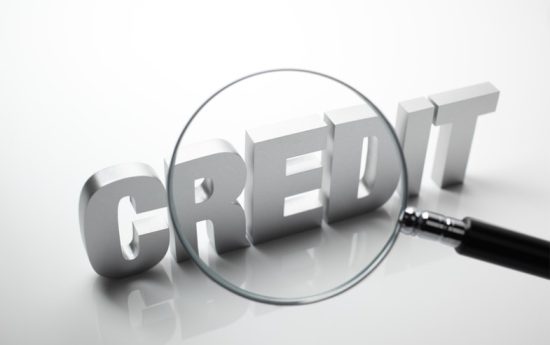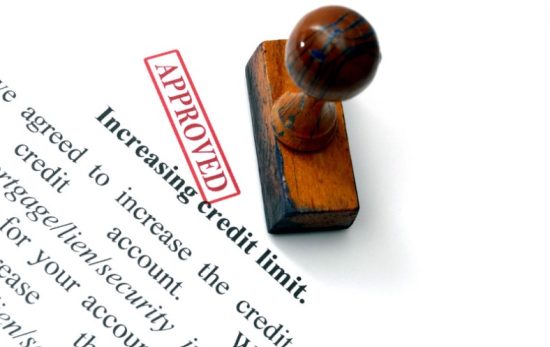Are you looking to take control of your financial well-being in Canada? One way to do so is by increasing your credit limit. A higher credit limit not only provides you with more purchasing power but also improves your overall credit score. But how exactly can you go about increasing your credit limit? Don’t worry – we’ve got you covered! In this ultimate guide, we will walk you through the steps on how to increase credit limit in Canada. So buckle up, because financial freedom awaits!
What is a Credit Limit?

A credit limit is the maximum amount of money that a financial institution or credit card issuer allows you to borrow. It represents the cap on your spending, dictating how much you can charge to your credit card or access through a line of credit.
Think of it as a safety net for both you and the lender. The credit limit serves as a measure to ensure that borrowers don’t accumulate too much debt beyond their means. It also helps protect lenders by mitigating their risk exposure.
The specific amount assigned as your credit limit depends on various factors, such as your income, repayment history, and overall creditworthiness. Typically, individuals with higher incomes and good credit scores are granted higher limits compared to those with lower incomes or less favourable borrowing histories.
It’s important to note that exceeding your credit limit can result in penalties like over-limit fees or even account closure. Therefore, understanding and managing your available credit responsibly is crucial for maintaining good financial health.
The Importance of Increasing Credit Limits
Increasing your credit limit can have several benefits and advantages. One of the main reasons why it is important to increase your credit limit is that it provides you with more financial flexibility. By having a higher credit limit, you have access to more funds in case of emergencies or unexpected expenses.
Another significant advantage of increasing your credit limit is that it can improve your credit utilization ratio. Your credit utilization ratio is the percentage of available credit that you are using at any given time. A lower utilization ratio indicates responsible borrowing behaviour and can positively impact your credit score.
Moreover, a higher credit limit also showcases to lenders that you are financially trustworthy and responsible. It demonstrates that you have successfully managed previous lines of credit, which may lead to more favourable terms when applying for loans or other types of financing.
Increasing your credit limits not only grants you greater financial flexibility but also contributes towards building a positive and strong credit profile over time. So, if you meet the requirements and manage your finances responsibly, don’t hesitate to inquire about increasing your credit limits!
When to Ask for a Credit Limit Increase?

Knowing when to ask for a credit limit increase is crucial to maximizing your financial opportunities. While there isn’t an exact timeframe that applies to everyone, there are certain indicators that can help you determine the right moment.
Consider how long you have been using the credit card. Most lenders prefer customers who have maintained a positive payment history and have had their accounts open for at least six months. This demonstrates responsible borrowing behaviour and builds trust with the lender.
Review your current credit utilization ratio. If you consistently use a high percentage of your available credit each month without exceeding it, this signals financial responsibility. Aim to keep your utilization below 30% as much as possible before requesting an increase.
Additionally, examine your personal finances and employment stability. Lenders want assurance that you have a steady income source to support higher credit limits. If you recently received a raise or promotion or started a new job with better pay, it might be an opportune time to request an increase.
What to Do Before Requesting a Credit Line Increase?
Before you jump into requesting a credit line increase, it’s important to take a few steps to prepare yourself and increase your chances of success.
Here are some things to consider before making the request:
- Check your credit report: Reviewing your credit report will give you an idea of where you stand financially. Look for any errors or negative marks that could potentially impact your request.
- Pay off outstanding balances: Before asking for a higher credit limit, try to pay off as much of your existing debt as possible. This shows creditors that you are responsible for managing your finances.
- Improve payment history: Consistently making on-time payments can positively impact your creditworthiness and improve the likelihood of getting approved for a higher limit.
- Increase income stability: Lenders often want assurance that you have a stable source of income before approving a larger credit limit. If possible, try to boost your income or show evidence of steady employment.
- Research different options: Consider researching other financial institutions or lenders who may offer more favourable terms or higher limits than what is currently available to you.
By taking these steps beforehand, you can present yourself in the best light when requesting a credit line increase and increase the chances of being approved for a higher limit. Remember, preparation is key!
How to Increase Credit Limit?

Increasing your credit limit in Canada requires responsible credit management and a positive credit history. Here’s a step-by-step guide on how to go about it:
- Review Your Current Credit Standing: Check your credit report to ensure it’s accurate and up-to-date. You can request a free credit report from major credit bureaus like Equifax or TransUnion.
- Improve Your Credit Score: Focus on building a positive credit history by making timely payments on all your credit accounts, including credit cards, loans, and bills. A higher credit score increases your chances of a credit limit increase.
- Maintain a Low Credit Utilization: Keep your credit card balances low in comparison to your credit limit. A low credit utilization ratio (the percentage of your available credit you’re using) signals responsible credit usage to lenders.
- Demonstrate Responsible Credit Behavior: Consistently pay your bills on time, avoid maxing out your credit cards, and refrain from opening multiple new credit accounts within a short period.
- Update Your Income Information: Ensure your creditor has your current income information. A higher income may increase your chances of getting a credit limit increase.
- Request a Credit Limit Increase: Contact your credit card issuer or lender and ask for a credit limit increase. Many financial institutions provide an online or phone option for requesting increases.
- Explain Your Request Clearly: Be prepared to explain why you’re requesting a credit limit increase and highlight your positive credit history. Stress your commitment to responsible credit management.
- Consider a Soft Credit Check: Some lenders may offer to check your creditworthiness without conducting a hard credit inquiry, which won’t impact your credit score.
- Be Patient and Avoid Frequent Requests: Requesting frequent credit limit increases within a short time can be seen as a sign of financial instability. Space out your requests, usually every six months to a year.
- Monitor Your Credit: Keep an eye on your credit report and score to track your progress and ensure that any approved credit limit increases reflect accurately.
Remember that credit limit increases are not guaranteed and depend on your financial situation. Avoid increasing your credit limit solely to spend more; instead, focus on responsible credit use and financial management.
What To Do If Your Request Is Denied?
So, you’ve mustered up the courage to ask for a credit limit increase, only to have your request denied. It can be disheartening and frustrating, but don’t worry – all hope is not lost! There are still steps you can take to improve your chances of getting that coveted higher credit limit.
It’s important to understand why your request was denied. Lenders typically consider factors such as income stability, credit history, and debt-to-income ratio when making these decisions. Take some time to evaluate your financial situation and identify any areas that may need improvement.
Next, reach out to the creditor who denied your request for more information. Understanding their reasoning can provide valuable insights into what specific areas you need to work on to enhance your chances of success in the future.
Once armed with this knowledge, focus on addressing those issues head-on. Pay down existing debts or try increasing your income through side gigs or part-time jobs. Building a solid track record of responsible borrowing by consistently making payments on time will also work in your favour.
How a Credit Limit Increase Could Impact Credit Scores?

Increasing your credit limit can have both positive and negative impacts on your credit score. On the positive side, a higher credit limit can lower your overall credit utilization ratio. This ratio is calculated by dividing the amount of credit you are currently using by your total available credit.
By increasing your credit limit, you effectively decrease this ratio, which is seen as a positive factor in determining your creditworthiness. A lower utilization ratio shows that you are not maxing out your available credit and indicates responsible financial management.
However, it’s important to note that requesting or receiving a higher credit limit may also trigger a hard inquiry on your credit report. Multiple inquiries within a short period can temporarily lower your score.
Additionally, if you’re tempted to spend more with an increased limit and end up carrying more debt, it could negatively impact your score in the long run.
While increasing your credit limit has its benefits for improving utilization ratios, it’s crucial to use this increase responsibly and avoid accumulating unnecessary debt. Regularly monitoring and managing all aspects of personal finances will ultimately contribute to maintaining or improving one’s overall financial health
Conclusion
In summary, increasing your credit limit is a great way for you to have more financial freedom and can help improve your credit score. It’s important to be mindful of how much additional debt you’re taking on when requesting an increase in your credit limit. Take the time to research different strategies that will help you increase your chances of getting approved for a higher limit. With thoughtful planning and perseverance, you’ll find success in growing your credit line!
FAQs – How to Increase Credit Limit in Canada?
1. What is the average credit card limit in Canada?
The typical credit limit in Canada is approximately $5,800. Personal income, employment history, debt-to-income ratio, credit history and score, and credit utilization are just a few of the variables that affect credit limitations.
2. Does increasing my credit limit hurt my credit score?
Your credit utilization ratio may decline if your credit limit is raised. If your spending patterns don’t change and you keep making your monthly payments on time, your credit score can go up. However, your credit score could suffer if you significantly increase your expenditure in conjunction with your new credit limit.
3. Is it better to have a high or low credit limit?
If your expenditure stays the same, having a greater credit limit delivers benefits like expanding your available financing and lowering your credit use ratio. However, it might also work against you, particularly if you alter your spending patterns.
4. Do banks automatically increase your credit limit?
The credit card company may reward you by increasing your credit limit automatically or by giving you the option to do so. It might only be a slight increase or it might be as much as 30%. Even if the news may have surprised you, there is no need to be alarmed. In actuality, it’s evidence that you’re using your credit card wisely.










